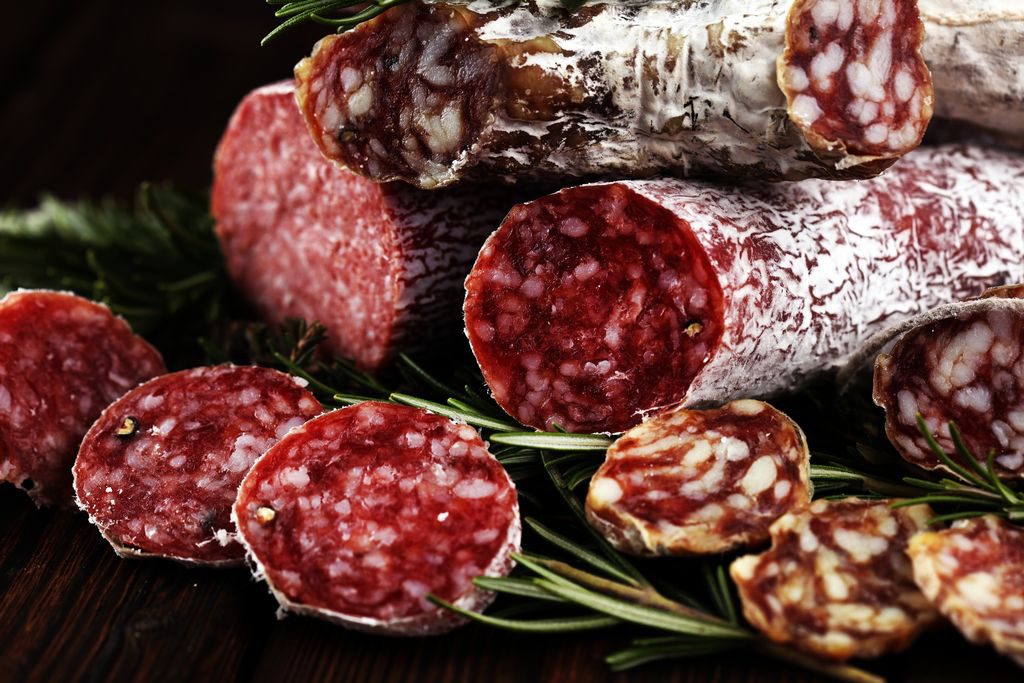Salami
Salami is a very tasty and appreciated seasoned sausage, produced with different variations in different regions of Europe.

Salami is one of the most common and most popular cured meats in Europe: it is a raw and seasoned product made with pork, suitably ground and mixed (characteristic is the presence of the fat, white part), then salted and flavored thanks to the presence of spices and aromas. According to the area of origin, in fact, the salami is enriched with ground pepper or in grains (both white and black), garlic or fennel. The typical type of processing of salami is however also applicable to other types of meat, including sheep, goat, horse, donkey and goose, and game such as salami obtained from the processing of wild boar. Special mention should be made of the recent tuna salami, made from the processing of this fish. Italy is well known for the production of this sausage, but there are also other variations such as Spanish chorizo (with a typical bright color) and typical Hungarian and Swedish cured meats.
The seasoning of the salami
The main characteristic of the processing of the salami, in addition to the salting from which the name of the product derives, is the seasoning: it can last for periods of time from two weeks to six months and takes place by bagging the minced meat in an animal casing (almost always pork, but also of bovine, ovine or equine origin) or of artificial origin (cellulose or with special collagen). The shape of the salami varies according to the diameter (from 3 cm to 20 cm on average) and the size of the sausage, usually round and elongated, from 10 cm to 60 cm.
Nutritional values
Salami is a sausage as tasty as to keep an eye on: the high presence of triglycerides, saturated fats, cholesterol and sodium chloride makes it a food to be consumed occasionally, and to be avoided in cases of hypertension and who is doing a diet to control weight. Due to the processing method it is unsuitable for consumption even by pregnant women, as it is raw, and some products may contain lactose if made with the addition of milk powder, thus making it a food not to be taken if you suffer from Lactose intolerance. As for calories, salami is particularly caloric: 100 grams contain on average 425 kcal.




